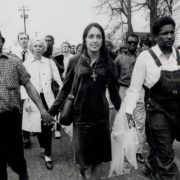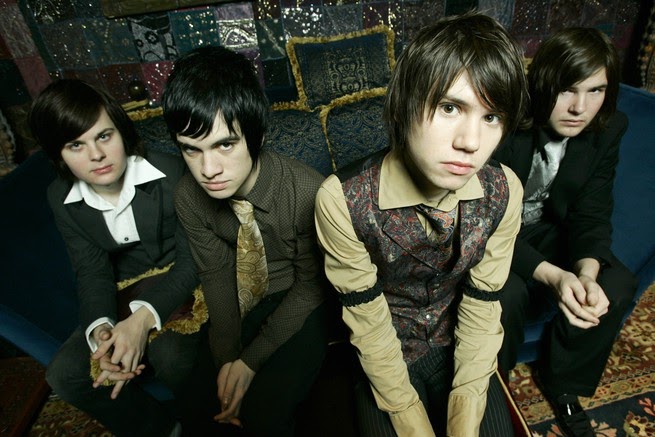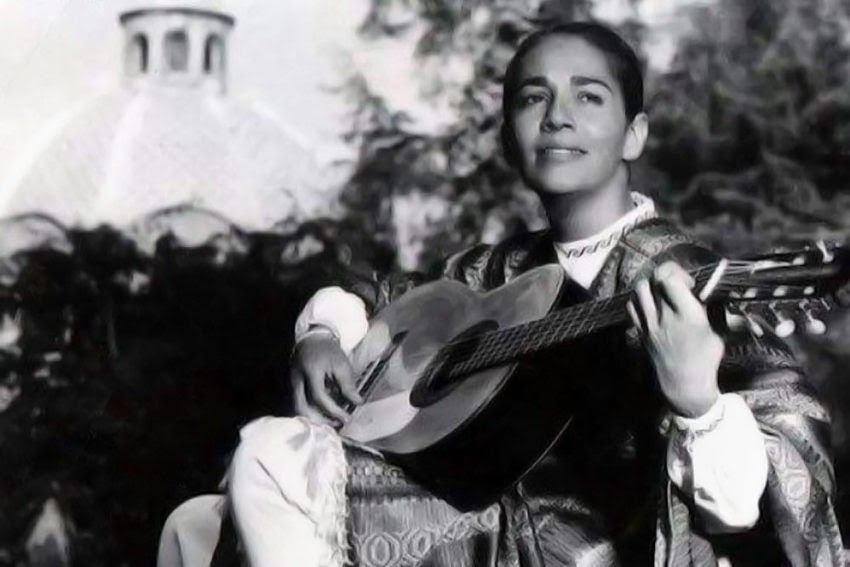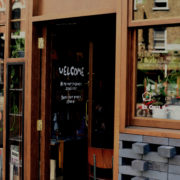Remembering The Regenerative Benefits Of Falling In Love With Music…Again

Words By: Andrea Susarrey
How to consciously reverse quick consumption of music into a powerful tool for self growth.
Music is not just entertainment, it’s a tool. In a time where we are constantly distracted, it’s all too easy to confuse the deeper benefits of connecting to music with our addictive need to consume culture.
In a world full of constant noise It’s easy to forget the potent qualities that not only listening to, but deeply engaging with music can have on ourselves. Music has a way of allowing us to live vicariously through moments, eras, and situations that are foreign to our own experience. It has the ability to empathize with us and let us empathize with something so impossibly distant. Music is a tool that transports us into a place of visualization and emotional projection. It’s one of the strongest medicines, collectively and individually. Though its over-saturation and constant availability can actually backfire and distract us from the opportunity to consciously use it as such.
Here is a reminder of the importance of falling in love with music again. Maybe a second, third, or fourth time around in our lives. However obvious it may be, this hopefully reaffirms that consciously engaging with anything we consume is a tool for self-expansion and growth. A necessary one to be autonomous and consciously active today.
Here are four tips that should (hopefully) get you to fall in love with music again:
When lost, sometimes the best way forwards is backwards.
Go back to the songs and projects you know you love, even if they’re not cool. It can’t be emphasized enough how oversaturated the music market is. This combined with the competitive need to feel as if we know every single artist in the game almost the moment they have released their debut track sometimes makes it feel as though being a music listener comes with homework.
We’ve all had a musical journey that often started somewhere that we’d probably cringe at the thought of now. Sometimes when we’re lost, going back to those early landmarks on our trail is a good idea. There’s a reason why you connected to it at one point, it may not be compatible with your life now, but you can almost always still appreciate something about those tracks – even if it might take you a second to find that good in it again.
It may be just a fraction of a second of a melody, but sometimes music can unlock certain memories or ideas from the last time we heard them, even if it was years ago. Listening to songs we haven’t heard in a very long time is a nice exercise to expand our perspectives through remembering the different ways we used to think, especially if you’ve been feeling a little one-track-minded lately.

Scenario matters.
That doesn’t mean we have to reserve two hours a night to listen to a full album with our undivided attention. But, if your playlists have become a little stale and you sigh at the thought of having to update it in order to get the tiny (but valid) endorphin hit, then you’re probably just consuming the music. (Which isn’t bad, but again this list is a reminder of getting back to the deeper benefits of music)
If you don’t make space for a relationship, then it’s impossible to have one. This is true for everything.
Find your space where you can really pay attention to music. Think of those everyday activities and places where you have a bit of time to afford your attention to music – for many of you this could be your commute to work/any time spent travelling to destinations or even whilst you’re cooking or cleaning. But regardless of where you are, there is something special about how moving through space can heighten our focus when listening to music.
Those who seek shall find.
The more you know and dig the more you get out of the experience listening to it. Learning about the artist and context in which the music was made allows for you to connect with the music on a completely different level because you can project yourself to the moment and situation in which it was created. This is especially true when it comes to the oldies, but not exclusively to. Music is everywhere and the more you research the people/ situation/ inspiration it came from, the more you realise how small and deeply intertwined the world can be.

Be open to something you almost certainly hate
Let it come to you and let yourself be surprised. Often, we can be so stuck in looking for that kick from music in the same places. We forget that there is so much out there we don’t know, or maybe we do but we just haven’t heard it with open ears.
Have you ever been eager to show a certain song to someone and you can visibly tell that they aren’t into it? Even if you’re convinced it’s sonic perfection, the experience of showing it to someone who doesn’t get it suddenly changes the way it sounds to you. The company you have when listening to music does have an effect on how the music itself is perceived. Listening to hard rap with your grandmother leaves a different taste in your mouth than listening to it with your friends.
Think of it in reverse – listen to a song or genre that you have typically dismissed and try to think about it and listen to it from the perspective of someone who loves it. Try and see the gem they do, maybe it’s a certain rhythm to dance to, maybe it’s special because it’s specific to the experience of a niche group – whatever it is, try and find why someone would like it. It won’t make you lose your edge to suddenly enjoy a Corinne Bailey Rae chorus if you live and breathe hardcore punk. In fact, it’ll just make you have a deeper understanding of what you like and look for in music past the obvious genre markers.





![ZINO VINCI’S ‘FILTHY & DISGUSTING’EP BRINGS YOU TO THE CORE OF THE ARTIST [@ZinoVinci]](https://guap.co/wp-content/uploads/2023/10/Zino-4.jpg)




